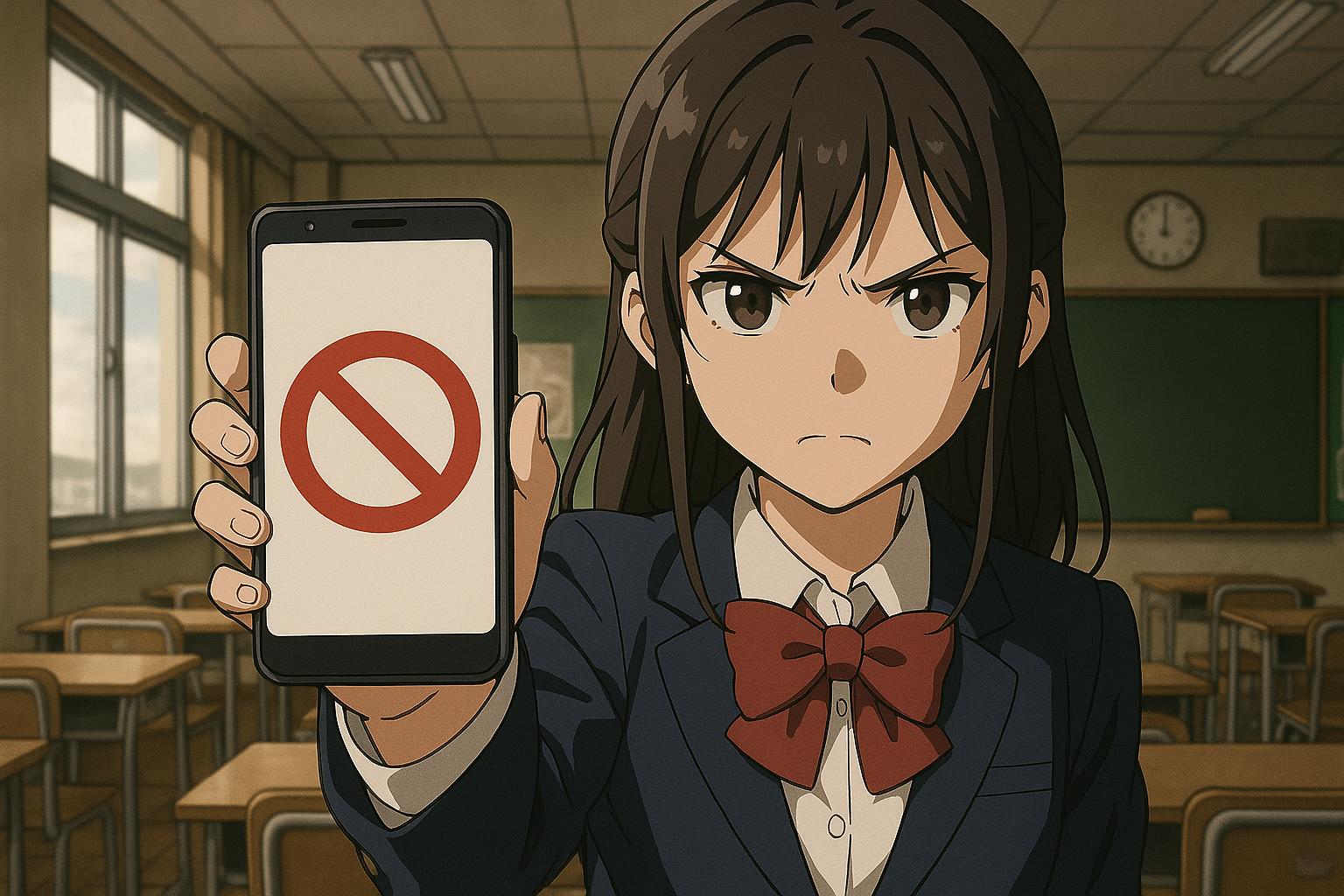Laura Trott, the Shadow Education Secretary, has escalated the debate surrounding smartphone usage among schoolchildren by advocating for a comprehensive ban on smartphones in schools for students under the age of 16. This initiative aims to mitigate disturbances in classrooms and address growing concerns regarding the mental well-being of young people.
Trott argues that the consequences of not implementing such a ban are "very grave." According to her statements, only 11% of schools fully enforce a smartphone prohibition in secondary education, contributing to daily disruptions in half of GCSE classrooms. She emphasised the need for immediate action, stating, "We know the damage that smartphones are doing in classrooms up and down the country." She also pointed out that the Department for Education has documented the negative effects of smartphones on students, describing the current situation as "an absolute crisis."
In suggesting alternatives, Trott proposed that parents equip their children with tracking devices like Apple AirTags or basic mobile phones, often referred to as "dumb" phones, to help monitor their whereabouts without the distractions that smartphones present. She acknowledged the practical need for parents to have some means of keeping track of their children while alleviating the pressures that smartphones impose on students during school hours. She stated, “There are lots of ways of doing that - AirTags, dumb phones - but a smartphone is so, so, so damaging.”
The Conservative Party is not merely endorsing Ms Trott’s perspective; they are actively pursuing structural changes. An amendment has been tabled to the Children’s Wellbeing and Schools Bill that seeks to embed smartphone bans into legislative frameworks, thereby formalising a commitment to reduce mobile phone use in educational settings. This initiative reflects a broader understanding among policymakers of the disruptive role social media and mobile devices play in students' academic lives.
Interestingly, a national survey recently corroborated the rising trend in mobile phone bans, revealing that 99.8% of primary schools and 90% of secondary schools in England have already adopted some form of restriction. Such proactive measures from headteachers suggest a recognition of the negative implications smartphones can have on educational outcomes. Daniel Kebede, General Secretary of the National Education Union, has voiced support for a statutory ban, underlining the damaging impact these devices have on young people's concentration and academic performance.
Contrastingly, a study published in the Lancet highlighted that while many educators advocate for restrictive phone policies, such measures do not necessarily correlate with improved mental health or academic performance in adolescents. The research demonstrated that excessive screen time is linked to deteriorating mental health, behavioural issues, and diminished physical activity among students. This raises important questions about the effectiveness of blanket bans versus targeted interventions aimed at managing smartphone use throughout a child's development.
Public opinion appears to align with Trott's initiative, as recent surveys indicate that nearly two-thirds of the British public support a ban on smartphones in schools. However, the Labour Party has expressed reservations about such measures, lacking a formal stance on implementing a school-wide ban. This discrepancy between public sentiment and political action reflects a complex dynamic, with calls for stricter regulations in sharp contrast to the current policies that provide guidance without mandatory enforcement.
Trott, a mother herself, envisions changing societal norms surrounding smartphone ownership. She plans to delay giving her children smartphones until they turn 16, in hopes of diminishing the societal pressure parents face. “I think that’s going to come across some resistance,” she acknowledged, but she aspires for a future where parents are encouraged to hold off on such devices until their children are older. By driving this conversation forward, Trott aims to protect childhood spaces and enhance academic focus, fostering a healthier environment for young people to thrive in.
In a world increasingly dominated by digital distractions, Laura Trott's push for a smartphone ban highlights urgent discussions about the balance between parental oversight and educational integrity, and the societal implications of our evolving relationship with technology.
Reference Map
- Paragraph 1: [1], [2]
- Paragraph 2: [1], [3]
- Paragraph 3: [1], [4]
- Paragraph 4: [3], [4]
- Paragraph 5: [5]
- Paragraph 6: [6]
- Paragraph 7: [1]
- Paragraph 8: [1], [7]
Source: Noah Wire Services
